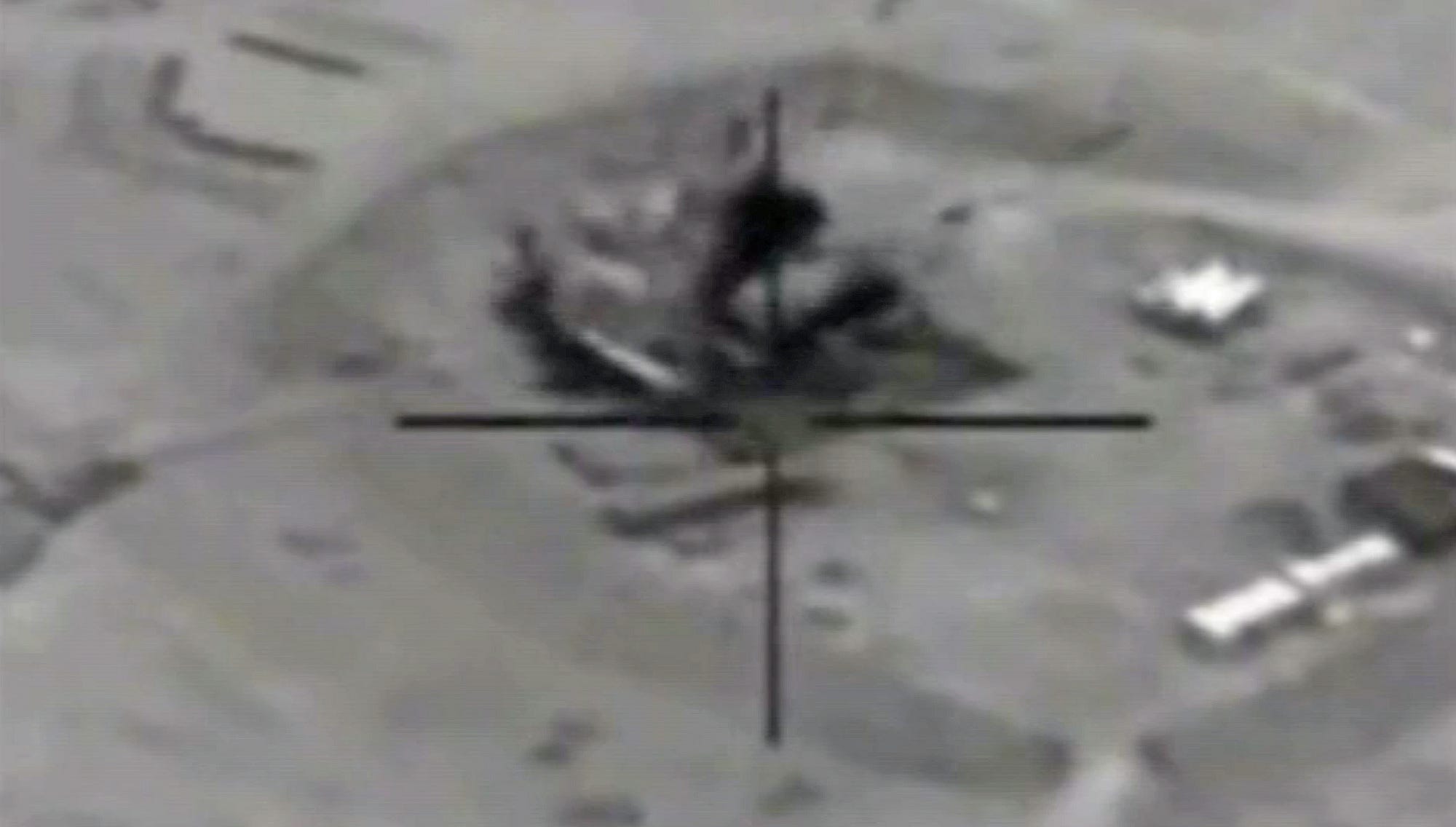by ROBERT BECKHUSEN
The terror group depends on crude
Falling oil prices are putting the squeeze on a lot of governments, businesses, rebel groups and gangs.
But petroleum’s collapsing value could hurt Islamic State more than most, according to a recent newsletter from the Combating Terrorism Center at West Point. And this could force the jihadi group to adjust its military strategy.
At its height, the jihadis made up to $6 million per day selling crude oil, when it traded for $100 per barrel, according to the newsletter. That’s probably an overestimate, because it assumes Islamic State was able to produce and sell all the oil it controlled.
More realistically, Islamic State’s proceeds were around $1–2 million per day, according to a November estimate by economics research firm IHS.
The jihadi organization also wasn’t getting the most money it could per barrel. Because the group relies on the black market, Islamic State only received $39 for each barrel—when the barrels were actually worth $100.
It’s still a lot of money for a terrorist group, but not as much cash as theycould have made.
Then in the months after the group swept into the Iraqi city of Mosul in June—sparking the creation of an international coalition to destroy it—Islamic State’s primary source of revenue halved.
Today, the global crude price is hovering above a very low $46 per barrel, and might plunge even further.
“The consequences of missing oil revenue for [Islamic State] are severe,” wrote Geoff Porter, the newsletter’s author. “IS is unlikely to decrease funding for its military operations so it will have to find ways to simultaneously cut costs elsewhere and raise new revenue—and both methods are likely to jeopardize popular support for the group.”
If Islamic State is actually a state, then it has a rentier economy. Analysts have dubbed the jihadist group a “rentier caliphate” and a “petro-militia” because of its reliance on oil.
By rentier, this means Islamic State pulls most of its income, or “rents,” from selling commodities to external buyers. The group’s largest commodity … is oil.
The state sells the oil, then redistributes a portion of the proceeds to the people under its rule—and doesn’t tax them very much. Islamic utopia? Not exactly.
 At top—Islamic State fighters near the Beiji refinery near Baghdad on June 19, 2014. AP photo. Above—a coalition air strike hits an Islamic State refinery. Department of Defense
At top—Islamic State fighters near the Beiji refinery near Baghdad on June 19, 2014. AP photo. Above—a coalition air strike hits an Islamic State refinery. Department of Defense
The flip side—and this is true in other rentier Middle Eastern petro-states—is that government officials don’t have to be very responsive to the people, as long as the oil keeps flowing.
But Islamic State is different, because it doesn’t hold much cash in reserve.
The petro-powers of Saudi Arabia and Iran have huge oil stabilization funds that keep revenues flowing, and continue paying for services, when the price of staple—and risky—commodities like crude oil fluctuate.
Another problem is that the global petroleum industry is full of middlemenwho learn how to pinch the pockets of the next person in line. And Islamic State is almost entirely dependent on smugglers.
The jihadists sell the oil to drivers, who sell to middlemen, who sell to refineries—and eventually the crude finds its way to a buyer. But the terror group only gets a fraction of the market price per barrel.
Combine that with a collapsing global price, and it’s an economic disaster akin to South Sudan.
Porter suspects the jihadists could shift to rely more on their traditional tactics and money-making operations—kidnapping and extorting people. Another option is taxing already-costly imports and hitting up sympathizers in the Islamic world for donations.
But this won’t likely make up the difference. The group could raise taxes, but as Porter notes, Islamic State asserts it governs by “Sharia dictates regarding fixed tax rates.”
Hiking taxes, under the group’s own definition, would be un-Islamic.
“Lastly, it could try to capture more oil,” Porter writes. “It could decide to cede non-oil producing territory and refocus its military efforts on seizing other oil-rich regions in Iraq.”
Islamic State could revert back to insurgent, terrorist-style tactics. This was the group’s preferred method of warfare before it seized much of northeastern Syria. There’s some evidence the group is already doing this, as it comes under pressure from United States and coalition air strikes.
Allied warplanes continue to attack oil infrastructure, bombing nearly two dozen modular refineries in 2014. Another air strike hit a refinery near the Syrian city of Dawr Az Zawr in recent days.
Which means that if oil prices rebound, Islamic State’s production won’t rebound with it. The group is also having a hard time finding the technicians, engineers and managers to handle the complicated logistics of the oil trade.
But the terror group is adaptable, and can refine the black gold in so-called micro-refineries inside homes and moving trucks. It’ll still make money, and the group will keep fighting.
It’ll just be weaker.
No comments:
Post a Comment